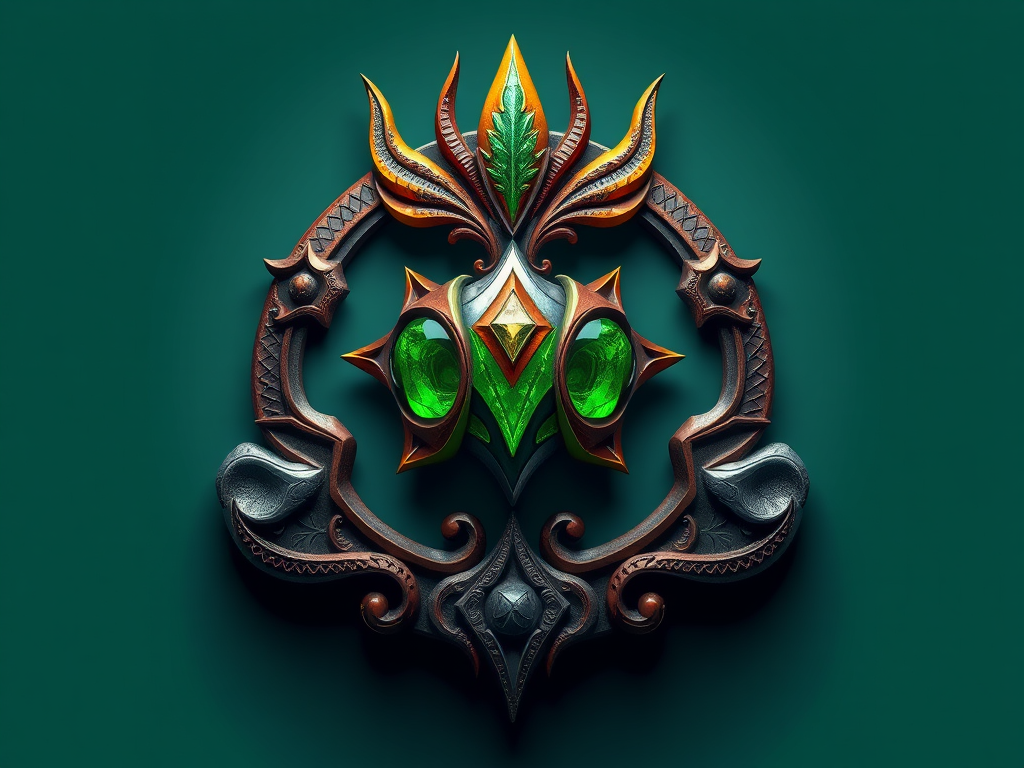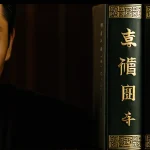Chinese novels offer a remarkable spectrum of stories, blending ancient traditions with modern creativity. From the martial arts epics of wuxia and the fantastical realms of xianxia to poignant romances and visionary science fiction, each genre reveals unique cultural and literary nuances. Understanding these styles enriches readers’ appreciation and guides them toward titles that truly resonate with their tastes. This curated overview highlights standout works and authors across genres, helping you discover the diverse world of Chinese literature.
Curated Overview of Top Chinese Novels by Genre and Style
Delving into the best Chinese novels requires understanding the rich diversity within Chinese literature genres that have evolved over centuries. Chinese novels are not just stories; they embody unique cultural contexts, narrative techniques, and stylistic nuances. To navigate this vast landscape, it is helpful to categorize these novels into main genres such as historical fiction, wuxia (martial arts), fantasy, contemporary realism, and romance.
In the same genre : How Are UK News Outlets Adapting to Modern Challenges?
Each of these Chinese literature genres has defining characteristics. For example, historical fiction in Chinese literature often intertwines real historical events with fictional characters, providing deep insights into Chinese history and philosophy. Wuxia novels focus on heroic martial artists navigating codes of honor, blending action with introspective themes. Chinese fantasy often incorporates mythological elements, drawing from folklore and Taoist or Buddhist symbolism. Contemporary realism explores everyday life and social issues with a focus on authentic character portrayals, while romance novels frequently depict emotional complexities in traditional or modern contexts.
To make informed Chinese novel recommendations, readers should first identify their genre preferences. A fan of action and adventure might gravitate towards wuxia or fantasy, while a reader interested in social commentary may prefer contemporary realism. Popular Chinese authors often cross genres but usually retain distinct storytelling features, so recognizing an author’s style can also guide choices.
Also to read : Discover top chinese novels across genres and styles
When exploring Chinese novels, consider these tips for navigating different genres and styles:
- Consider cultural themes and motifs characteristic of each genre.
- Understand how historical context shapes narrative styles.
- Explore works by renowned authors to appreciate influential storytelling methods.
For those eager to discover exemplary works, you can access this unique literary collection with Yuan Literature to browse curated selections that highlight the finest offerings across genres. This curated approach enables readers to immerse themselves in both classic and contemporary masterpieces within the best Chinese novels.
Understanding Chinese Novel Genres and Literary Styles
Chinese novel genres encompass a rich variety of stories, reflecting the country’s deep cultural heritage and evolving literary tastes. Among the most popular Chinese novel genres are wuxia, xianxia, romance, historical, sci-fi, and modern drama. Each genre brings its own unique characteristics: wuxia focuses on martial heroes and chivalry; xianxia blends fantasy with Daoist mysticism and immortal cultivation; while romance novels explore emotional relationships within traditional or contemporary settings.
When discussing literary styles in Chinese fiction, it is essential to distinguish classical from modern approaches. Classical style often features formal language and intricate narrative structures, often found in historical and mythological tales. In contrast, the modern style includes more straightforward language and incorporates contemporary themes, especially noticeable in webnovel formats that prioritize fast-paced storytelling and serial publication.
The evolution of both types of Chinese novels and styles reflects changing social and technological landscapes. Webnovels have surged in popularity, offering interactive experiences and immediate reader feedback, reshaping how stories unfold. Meanwhile, classical and modern narratives continue to coexist, preserving tradition while embracing innovation.
Understanding these Chinese novel genres and literary styles provides a clearer appreciation of the diversity and richness in Chinese fiction today. For those wanting to explore this fascinating world in depth, you can access this unique literary collection with Yuan Literature to discover top Chinese novels across genres and styles.
Wuxia and Xianxia: Martial Arts and Fantasy Epics
Discovering wuxia novels and xianxia fiction opens a window into two of the most beloved genres within Chinese fantasy literature. Wuxia novels center around the valor and chivalry of martial artists in ancient China. These stories emphasize personal honor, skilled combat, and complex relationships among martial sects. In contrast, xianxia fiction blends martial arts fantasy with elements of Daoist philosophy, immortality quests, and mystical cultivation of spiritual power.
The hallmark characteristics of wuxia novels include intricate fight scenes, the hero’s journey for justice, and richly depicted societies bound by codes of righteousness. Xianxia fantasy novels, meanwhile, feature protagonists who seek enlightenment by ascending to higher realms, often battling demons, gods, and supernatural forces along the way. This blend creates a deeply immersive experience that transcends earthly conflicts.
Prominent authors have shaped these genres significantly. Jin Yong’s wuxia novels, such as The Legend of the Condor Heroes, are celebrated for their vivid storytelling and intricate plotlines. Gu Long added a modern flair with his faster-paced narratives and psychological depth. On the xianxia front, authors like I Eat Tomatoes crafted epic tales that combine cultivation and adventure, while Mo Xiang Tong Xiu’s works interlace fantasy elements with complex interpersonal drama.
Fans of martial arts fantasy often praise these novels for their ability to transport readers into worlds where honor and mystical power collide. To explore this rich literary tradition further, readers can access this unique literary collection with Yuan Literature, uncovering a wide range of Chinese fantasy novels that showcase the best of wuxia and xianxia fiction.
Romance Novels: Classic to Contemporary Love Stories
Discovering Chinese romance novels offers a fascinating journey through diverse romance genres, from timeless classics to contemporary Chinese fiction. These stories captivate readers with rich narratives that explore love’s many facets, whether set in ancient courts or bustling modern cities.
Popular subgenres in Chinese romance novels include historical romance, which often blends imperial intrigue with passionate relationships, and modern romance, showcasing everyday life and emotional growth. Another thriving category is web romance, a digital-born genre that introduces unique storytelling styles and accessible plots, frequently serialized online for eager readers.
Renowned authors have significantly shaped the landscape of romance fiction in China. Tong Hua, known for her poetic language and deep character development, crafts sweeping historical romances that resonate across generations. Ding Mo specializes in combining romance with suspense, captivating readers who enjoy emotional twists. Gu Man captures the nuances of contemporary love stories, making her works relatable and heartfelt for modern audiences.
Top recommended titles represent diverse romantic themes. Historical novels often highlight loyalty and sacrifice, while modern stories tend to emphasize self-discovery and mutual support in relationships. Web romance novels, meanwhile, can range from lighthearted, humorous tales to intense, dramatic affairs.
For enthusiasts interested in exploring these genres and more, access this unique literary collection with Yuan Literature, where a broad spectrum of Chinese romance novels awaits. This enables deeper appreciation of China’s rich storytelling tradition and evolving romance narratives.
Historical and Political Drama Novels
Understanding Chinese historical novels and political drama fiction requires exploring how these genres intertwine to portray critical moments in China’s past. Chinese historical fiction often centers on intricate depictions of royal courts and social upheavals that shaped the nation. These novels not only dramatize historical events but offer insights into the political tensions and cultural shifts within different dynasties.
A hallmark of Chinese historical fiction is its vivid reimagining of historical figures and political intrigue. Authors such as Luo Guanzhong laid foundational work by blending legend and history, as seen in classic epics like Romance of the Three Kingdoms. Modern writers like Ma Boyong explore political drama fiction by focusing on the complexities of court politics and societal change, emphasizing the personal struggles behind public power plays. Similarly, Zhang Beihai is known for capturing the nuances of political life in his storytelling.
For readers interested in deepening their understanding of historical and political drama fiction, recommended must-reads highlight gripping narratives that bring history alive. These works often feature power struggles within royal courts and the consequences of social transformations. By engaging with these narratives, one gains nuanced perspectives on China’s political evolution and cultural heritage.
Access this unique literary collection with Yuan Literature to explore top Chinese novels across genres and styles. This resource provides exceptional works of Chinese historical fiction and political drama fiction for enthusiasts and scholars alike.
Science Fiction and Fantasy: Exploring New Worlds
Chinese science fiction and Chinese fantasy novels have seen remarkable growth, reflecting a vibrant wave of creativity in modern fiction. These genres invite readers to explore speculative and imaginative realities, often deeply rooted in cultural nuances and philosophical thought. Their rise signals not just an expansion in literary forms but also a new dimension in storytelling that resonates globally.
Notable works in Chinese science fiction include Liu Cixin’s The Three-Body Problem, which blends hard science with cosmic existentialism, marking a milestone for modern fiction on the international stage. This novel showcases a unique narrative style combining scientific rigor with profound imagination, a hallmark of Chinese sci-fi authors’ approach. Hao Jingfang’s Folding Beijing offers a compelling look at social stratification through speculative urban scenarios, while Baoshu’s What Has Passed Shall in Kinder Light Appear reimagines classic motifs within a futuristic setting.
The distinctive styles of these authors reflect the innovative spirit propelling Chinese science fiction and fantasy novels forward. Liu Cixin’s influence, for example, extends beyond storytelling to shaping the genre’s thematic concerns, such as the intersection between technology and humanity. Similarly, Hao Jingfang’s work emphasizes socio-political commentary wrapped in sci-fi narratives, providing both entertainment and critical insight.
For those seeking to delve deeper into this fascinating literary sphere, access this unique literary collection with Yuan Literature, which offers a rich selection of Chinese science fiction and fantasy novels. Exploring these works allows readers to appreciate not only the creativity of Chinese authors but also the diversity and depth characterizing modern fiction today.
Modern and Urban Contemporary Novels
Explore the world of modern Chinese novels that capture the pulse of city life through vivid storytelling. These works often fall under the banner of urban fiction or contemporary literature, focusing on everyday experiences—what readers may recognize as “slice of life Chinese novels.” These narratives provide insight into the rapid social changes in China’s urban centers, depicting themes like family dynamics, social pressures, and individual aspirations.
Urban contemporary novels shine by illustrating the complexities found in bustling metropolitan settings. A core element is their emphasis on realism and social commentary, offering readers an authentic glimpse into modern city dwellers’ struggles and hopes. For example, works by authors such as Xu Zechen delve into the nuances of city life with a profound empathy, portraying characters who navigate careers, relationships, and identity in urban spaces.
Likewise, Yu Hua’s contributions to contemporary literature stand out by blending stark realism with engaging storytelling that confronts historical memory and modern tensions. His narratives probe personal and collective experiences shaped by urbanization and societal transformation.
In this realm, Annie Baobei is renowned for her evocative portrayal of youth and alienation in contemporary China. Her writing style exemplifies the emotional depth and subtle melancholy often found in slice of life Chinese novels.
These authors collectively present a well-rounded view of modern Chinese life, each adding unique perspectives on urban living and contemporary issues. If you aim to understand or enjoy this vibrant literary movement, you can access this unique literary collection with Yuan Literature for a rich selection of titles.
Access, Availability, and Further Reading
Discovering how to read Chinese novels—whether in English or the original Chinese—has never been easier, thanks to numerous online platforms dedicated to Chinese fiction. Readers eager to explore authentic Chinese literature can access a broad spectrum of classical and contemporary works through digital libraries and translation websites. These platforms often provide free or subscription-based access to high-quality translations, allowing a deeper appreciation of the narrative styles and cultural contexts embedded in Chinese novels.
For those interested in online Chinese novels, it’s important to use reliable translation platforms to ensure accuracy and preserve the original meaning. Many websites specialize in bringing diverse Chinese fiction genres to international audiences, integrating user-friendly interfaces for smooth navigation and discovery. Moreover, dedicated reading lists sorted by genre and style can guide readers in their literary journey, highlighting influential authors and thematic variations across historical periods.
If you are aiming for comprehensive exploration, consider beginning with mainstream translated works and gradually branching into niche genres such as wuxia, historical fiction, or modern urban narratives. To enrich your reading experience further and broaden access to a unique selection of titles, you can also access this unique literary collection with Yuan Literature. This resource serves as a valuable bridge for enthusiasts wishing to deepen their understanding and appreciation of Chinese storytelling traditions.




